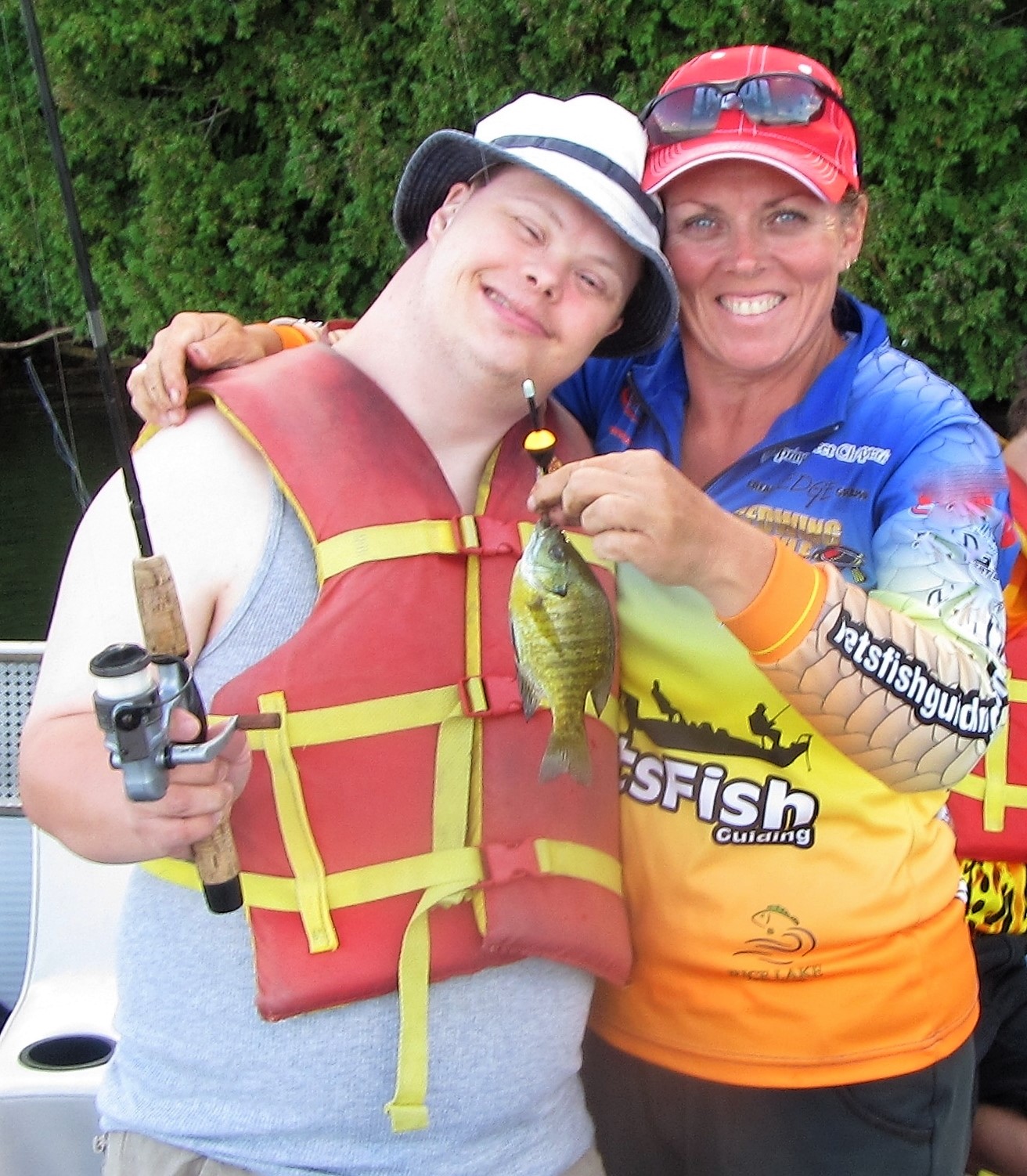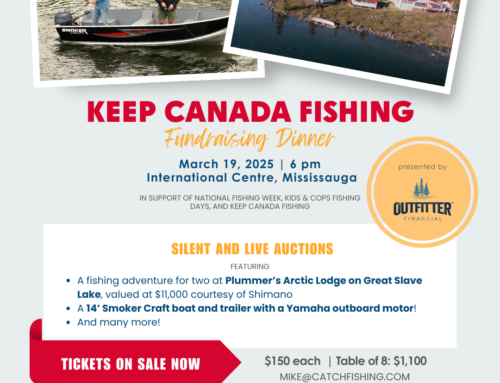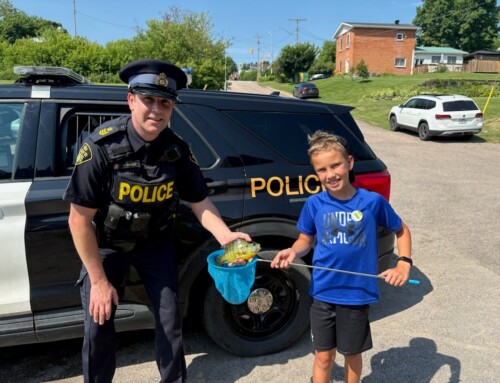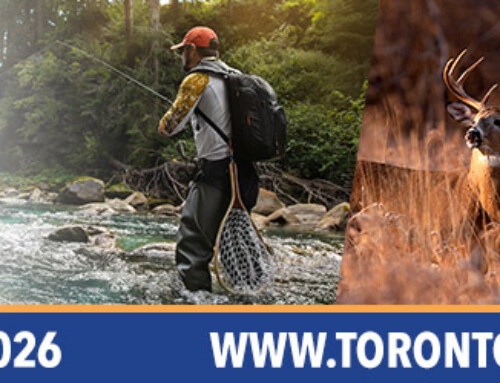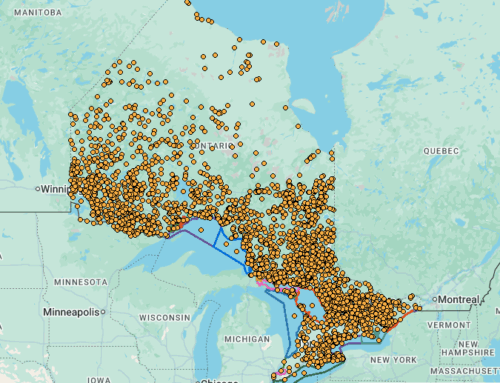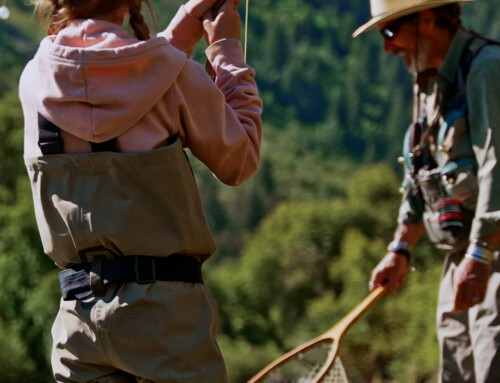Yvonne Brown is a Canadian angler and the founder of Ontario Women Anglers. In February 2016, Yvonne became the first female to receive the Rick Amsbury Award of Excellence, presented by the Canadian Angler Hall of Fame, for her contributions to the sport.
She is also an ambassador for National Fishing Week and Keep Canada Fishing.
For these reasons, and many others, she is one of our Champions of Recreactional Fishing.
Over the next few months we will be chatting with Canadian anglers who contribute to the overall success of sportfishing as a heritage activity. Here’s what Yvonne has to say about her career on the water.
Who introduced you to fishing? Can you describe any fond memories you may have of that experience?
My father was not only the person who taught me how to fish as a child, but also responsible for my re-introduction to the sport after a 30 year absence. I recall the fun my siblings and I would have catching panfish off the dock on Rice Lake almost 50 years ago.
Even more clearly, I remember that day in August 2008 that I spent on Crowe Lake with my dad and my youngest son where I caught my first smallmouth bass, which was also my biggest fish ever at the time. It was then that I made the decision to learn how to identify fish, rig my own rod, understand what baits to use when and just to spend more time on the water learning as much as I could about the sport.
Why did you start Ontario Women Anglers and Fishing 101 for Women?
I had the opportunity to be a fishing instructor in 2012 at the annual OFAH Women’s Outdoor Weekend where I met many women who had a similar history as me regarding their fishing experiences. A lot of them hadn’t fished since childhood and, during that weekend, caught their most fish ever, landed their biggest fish, learned how to set up their rods, how to tie fishing knots, and showed a keen interest in spending more time on the water. Not only did these ladies want to increase their fishing skills so they could fish independently or so they could take their children fishing, but they wanted to learn these skills from other female anglers.
From their enthusiasm and the realization that there was an obvious lack of opportunities for women anglers, I started planning the Fishing 101 for Women program in late 2012 and offered the first seminars in spring 2013. Initially, the program focused on the basics but over the years, it evolved to become Ontario Women Anglers and the organization now includes a variety of species and technique specific events, tournaments and fishing weekends under its umbrella such as:
- Ice and fly fishing
- Steelhead, pike, perch, crappie, walleye and salmon events
- Intro to Muskie Fishing in partnership with Muskies Canada
- Bass and perch tournaments
- Angler – New Angler Fishing Day
- Mom & Me Fishing Day
- Bass Fishing Weekend for Women
For 2019, we are starting two new programs:
- Master Angler Program
- OWA Mentorship Program
Have you had one of those “ah-ha” moments on the water when teaching women how to fish? If so, can you describe it?
In the beginning, I really focused on angler education which covered topics such as safety, regulations, conservation, fish identification, fishing techniques, etc. and which was primarily done in lecture format.
At the end of the first year of running the Fishing 101 for Women program, I introduced more hands-on activities like rigging a rod, learning fishing knots and fish handling. I made the last seminar of the year a full day event where the anglers’ education and hands-on activities took place in the morning and then we fished off a dock in the afternoon. This gave the women an opportunity to learn what they had learned earlier in the day and put their new knowledge to practical use with the support of volunteers. This formula proved to be very successful and we used it going forward, tailoring each seminar to the body of water we were fishing and the species we planned to catch that day.
In the past few years, and to streamline our events further, I often send out “homework” prior to an event so the women can cover some of the anglers’ education material at home. This way, we can focus on the hands-on activities and spend more time on the water on the day of the event.
Do you (or the women you mentor) encounter any sexism or barriers related to gender in the fishing community? How can the fishing community in general make fishing more inclusive?
I actually covered this topic at a bass club meeting a couple of years ago in a room of 25 men. Personally, I have been very fortunate in this predominately-male sport in that I have had very few negative experiences related to gender-based barriers.
I have had other women anglers tell me about demeaning and sometimes sexual comments directed at them at the boat launch, on the water, in a tournament or in a sporting goods store. Although women have fished for thousands of years alongside men as part of providing food for their families, when it comes to women anglers being viewed as equals in the sport, there is still an “ol’ boys” mentality that we do not have the same knowledge and ability on the water.
Through the growing number of women anglers in Canada, this is slowly changing and having organizations like Ontario Women Anglers plays a key role in supporting and mentoring female anglers so they can learn the same skills that their male counterparts learn from the fishing buddies they meet through work, sports teams and family. To make fishing more accessible for women has to start at grass roots level.
Why do you believe recreational fishing is important to Canadians?
Getting involved in any outdoor activity helps create stewards of our natural resources. The more families that engage in fishing, hunting, hiking and other outdoor pursuits, the better chance we have in educating Canadians in protecting our fisheries, wildlife and waterways. This is key in securing our resources for future generations.
It has been proven that fishing is great for one’s mental health as well. Many spend time on the water simply to unwind, de-stress and enjoy time in nature either alone or with family and friends.
There is also the economic benefit to consider. As an 8 billion dollar industry, many people depend on the revenue generated by anglers who spend money in cottage communities, at resorts, by purchasing tackle, boats and equipment, and a host of other expenditures related to fishing.
What general issues currently affect recreational fishing? What can we do to solve these issues?
It’s always a huge disappointment to see reports of outdoorsmen that abuse our natural resources by over-harvesting, spoiling fish, keeping out-of-season species and using illegal angling methods. Although I’m happy to see that the MNRF is laying more charges to those that ignore the laws that protect our fisheries, I think that, in some cases, the penalties should be stiffer, particularly to repeat offenders. In saying that, government at all levels needs to understand the need for and to invest in putting more enforcement conservation officers in the field.
Do you think anything needs to be done policy-wise to maintain our fishing heritage?
In keeping with the above, fines and penalties should be more severe to help deter people from breaking the law.
Are you able to share one of your favourite fishing photos with us and describe where it was taken?
The above picture was taken August 12, 2012 on Rice Lake. I had the privilege of helping to take a group of young adults out for an afternoon of fishing. We had a great time and caught dozens of fish… and with each one, there was a photo. The young man I’m with didn’t want to touch the fish but was happy to have me hold it for him so a picture could be taken. It is a day I will never forget and a moment captured that will be forever cherished.
Do you know a Canadian angler who fits the profile of a “Champion of Recreational Fishing?” Perhaps they introduce new anglers to the sport, or advocate for sustainable policies in government. Maybe they’re breaking down barriers on and off the water, or creating innovative ways for people to fish ethically. We’d love to chat with them! Please contact us or email info@catchfishing.com.
Keep Canada Fishing is the national voice of Canada’s anglers, and we lead the effort to preserve your right to sustainably fish on our lakes, oceans, rivers and streams. By informing anglers of current and potential issues and threats affecting recreational fishing and access to public waters, our goal is to motivate anglers to take action on matters of importance to the future of fishing and conservation. Furthermore, we’re your voice on Parliament Hill. If you would like to contribute to our efforts to “Keep Canada Fishing,” you can donate now via PayPal.

